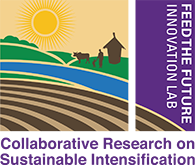 Einstein is credited with saying “Not everything that counts can be counted, and not everything that can be counted counts.” The same may be said about the role of local university capacity– both human and institutional—in regards to data generation, student training, and information sharing and dissemination. In many low and middle income countries, local universities lack capacity to conduct necessary research for food safety. This is a deficiency, particularly when considering the role that poor food hygiene and safety practices play on human health outcomes. Several sources have implicated enteric infections as contributing factors to the infection-malnutrition paradigm, and repeated enteric infections—specifically among children under the age of 5—have been linked to slow gains in global child nutrition outcomes (e.g. stunting; Crane et al., 2015; Lin et al., 2013; Guerrant et al., 2012; Poonum and Petri, 2012). Furthermore, the World Health Organization (WHO) has determined that “the global burden of Foodborne Disease is comparable to those of the three major infectious diseases, HIV/AIDS, malaria and tuberculosis” (Havelaar et al., 2015). Continue reading “Equipping University Laboratories: Creating the Foundation for Food Safety Research and Impacts in Low and Middle Income Countries”
Einstein is credited with saying “Not everything that counts can be counted, and not everything that can be counted counts.” The same may be said about the role of local university capacity– both human and institutional—in regards to data generation, student training, and information sharing and dissemination. In many low and middle income countries, local universities lack capacity to conduct necessary research for food safety. This is a deficiency, particularly when considering the role that poor food hygiene and safety practices play on human health outcomes. Several sources have implicated enteric infections as contributing factors to the infection-malnutrition paradigm, and repeated enteric infections—specifically among children under the age of 5—have been linked to slow gains in global child nutrition outcomes (e.g. stunting; Crane et al., 2015; Lin et al., 2013; Guerrant et al., 2012; Poonum and Petri, 2012). Furthermore, the World Health Organization (WHO) has determined that “the global burden of Foodborne Disease is comparable to those of the three major infectious diseases, HIV/AIDS, malaria and tuberculosis” (Havelaar et al., 2015). Continue reading “Equipping University Laboratories: Creating the Foundation for Food Safety Research and Impacts in Low and Middle Income Countries”


